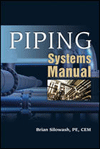In a moment it became personal for Peter Ollestad.
Ollestad, the national sales manager for Seattle-based bathroom vanity manufacturer Strasser Woodenworks, was at the Kitchen & Bath Industry Show a few years back when he was approached at his company’s booth by a Chinese manufacturer.
“They said they could manufacture our products cheaper,” Ollestad recalls. “I told them, ‘If I did that then I would have to fire 50 people.’ I asked them, ‘Do you think that is a good idea?’”
The answer Ollestad received momentarily stunned him.
“They just looked at me and said, ‘You will save money.’ That is when it got personal for me.”
Picking up Steam
The drive to buy and sell American-made products in the PHCP and PVF industries is on the rise. The country’s economic indicators such as home values, the unemployment rate and the Dow Jones industrial average slowly are improving on a national basis. Some supply houses also report that since the Great Recession rocked the industry and the United States as a whole several years ago, customers have shown a renewed spirit toward buying American.
“Some contractors are requesting American-made products now, but some still are concerned about the bottom line,” states Betsy Miner, co-vice president of Plattsburgh, N.Y.-based Hulbert Supply. “There is competition between contractors for the available jobs right now. Bidding is competitive.”
Hulbert Supply has implemented a plan of bringing in American-made products whenever feasible.
Recently, Hulbert’s was ready to make a change to one of its pump lines. At the NetworkASA 2012 convention in Orlando, Fla., last October, Miner and her brother and fellow co-vice president, Dale Miner, sat down and had discussions with Liberty Pumps, a fellow New York-based company.
“While we were there, we were able to spend some time with Chuck Schwabe and Pat Medlen from Liberty Pumps,” Betsy Miner says. “We both felt very good about the company and the support we would receive from them if we were to switch. We liked the fact they were made right in New York and Chuck assured us the quality was superb.”
After a management meeting and a demonstration from a Liberty Pumps representative, the switch was made. “We all were impressed and decided that day to change to Liberty Pumps,” Miner says. “So far we are extremely happy.”
Miner says whenever it is possible for Hulbert Supply to take on an American-made product line it will do so.
“When we decide to make a change in our lines we look at many factors,” she states. “Some of those are the quality of the product, whether it is in our buying groups and whether it is made in America, among others. Because of customer requests, in the last year we have been placing more emphasis on whether the product is made in America. We are getting more and more customers who want to buy American.”
Hulbert’s still is trying to find the right balance with its customer and contractor base on how many American-made lines it can sell. Hulbert’s doesn’t have a magic number or deadline on how many American-made products it hopes to sell in the future.
“Right now we don’t have a ratio or benchmark we are aiming for,” Betsy Miner says. “We are doing what makes sense for our company and our customers. We will continue to move toward American made products where we can.”
Driving the Economy
Ollestad says Strasser, which employs 50 people, has a $2.2 million payroll and allocates an additional $4.7 million into its domestic supply chain, is seeing more customer requests for American-made products in its showrooms.
“Customer and showroom feedback shows that people are coming in and asking for American-made products,” Ollestad says. “For the most part we’re more expensive than our Chinese counterparts and showrooms have to make a living, but the majority of the salespeople would go with an American-made product first. Price is a factor sometimes, but design, quality and warranty also are factors. Selling American-made products is more on the radar than it was three or four years ago.”
Strasser Woodenworks prides itself on how all of its more than 10,000 products are made to order and can be shipped anywhere in the U.S. in approximately two weeks. The company’s manufacturing standards adhere to the strict U.S. environmental standards, something foreign competition does not have to take into consideration.
“I did the math a few years ago,” Ollestad states. “In the wood shop there will be scrap wood. So we collect it and recycle it. We recycle nearly 450 to 500 trees a year.”
Bob Arnold, showroom manager at George’s Plumbing Supply in Pasadena, Calif., has been in the industry for 28 years and says he has seen requests for American-made products increase over the past decade. It helps when there are many California-based manufacturers to stock.
George’s Plumbing Supply sells California-made Native Trails, an artisan kitchen and bath fixture manufacturer, and Newport Brass among other local companies. It also stocks products from Brooklyn, N.Y.-based Watermark Designs, a contemporary bathroom faucet and fixture manufacturer. Arnold commends Native Trails and Watermark Designs for the innovation they bring to the market.
“Native Trails has a quality design and the service has been impressive,” he says. “That’s the great thing about being in California and working with a California manufacturer. If there is a problem, it is quickly resolved.”
Arnold says American-made products will always have a solid marketplace of loyal customers to build from.
“They look for that American-made product,” he says. “At times there may not be as many of them, but they will always be there.”
Recently, Watermark Designs has been working with national and international architecture firms on “reverse outsourcing.” Watermark supplies fixtures to luxury hotels and condominiums being constructed in Shanghai, Macau and Hong Kong. U.S. exports to China were at an all-time high in 2012 and are expected to rise in 2013.
“The quality of American-made products is fantastic,” Arnold says. “American-made products have a world-renowned reputation.”
New York-City-based Solco Plumbing Supply estimates 90% of its product lines are made in the U.S. Since 2010, the company has placed a hard-sell emphasis on its domestic lines.
In 2010 and 2012, Solco held its America First Expo. The 2012 event brought together 62 domestic vendors and more than 200 customers to Citi Field, home of Major League Baseball’s New York Mets.
“Our marching order is domestic manufacturer first,” says Tom Acquavella, Solco’s director of showrooms and marketing.
Of course, price typically is the final roadblock to finish the sale.
“We always push and try to level the playing field,” Acquavella says. “Rome wasn’t built in a day. It did take time to convince the customer that American-made products are the way to go. The price still might be higher, but it’s becoming more competitive every day.”
Helpful Links:














